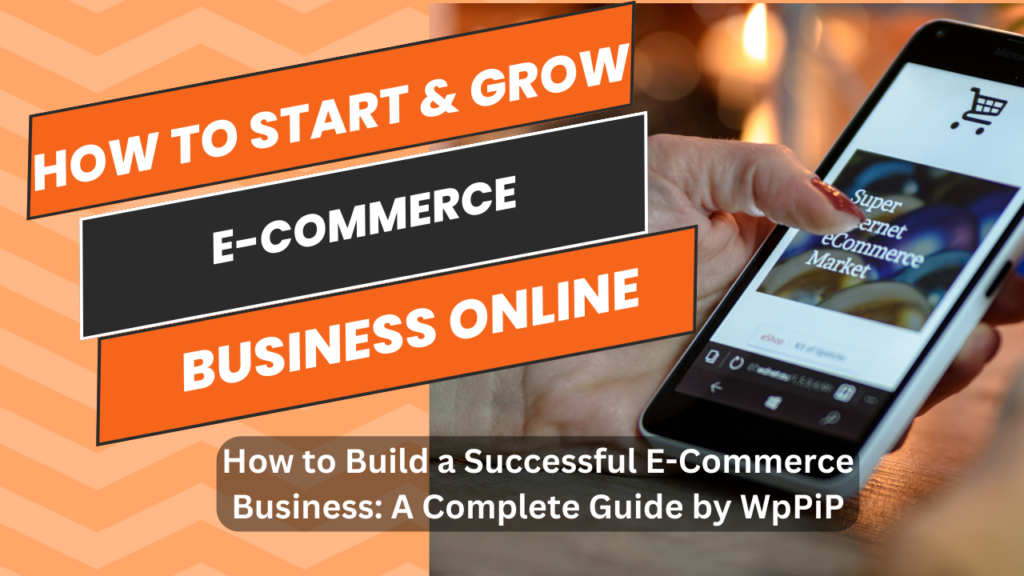How to Start and Grow a Hosting Company: Digital Strategies for Business Owners
Starting and growing a hosting company in today’s digital age is both an exciting and challenging venture. The hosting industry is booming as businesses, individuals, and organizations are increasingly reliant on digital spaces for their operations. Whether you’re looking to provide shared, VPS, or dedicated hosting services, creating a strong online presence is crucial to your success.
In this guide, we’ll cover key digital strategies for growing your hosting company, including web development, digital marketing, and video content creation. By the end, you’ll have actionable insights on how to position your hosting business for long-term success in an increasingly competitive market. Plus, we’ll show you how WpPiP, a full-service digital agency, can support your hosting company’s growth every step of the way.
Step 1: Establish a Strong Web Presence with Web Development
The first step in starting a hosting company is to build a professional, reliable, and functional website. Your website serves as the face of your business online, so it’s essential that it reflects your hosting company’s expertise, trustworthiness, and commitment to quality service.
Why Web Development Matters for Hosting Companies
When potential customers visit your site, they should be able to easily navigate through your services, learn about your hosting packages, and contact you for more information. The website should function as an informative and user-friendly platform, built with the following considerations in mind:
- Clear Branding and Messaging: Your website should clearly state who you are and what you offer. Use bold, clear typography and messaging to showcase your hosting services, such as shared hosting, cloud hosting, VPS hosting, and more. Ensure the key benefits of choosing your hosting services are visible, like reliability, security, and scalability.
- Responsive and Mobile-Friendly Design: With the increasing use of mobile devices, your website must be responsive, meaning it should adapt seamlessly to different screen sizes and devices. Google’s mobile-first indexing also means that mobile-friendliness is a key ranking factor for SEO, which directly impacts your visibility in search engines.
- Fast Load Times: As a hosting company, your site’s performance should be a reflection of the quality of service you offer. Slow loading times not only frustrate potential clients but also hurt your SEO ranking. Optimizing your website for fast load times is critical for both user experience and search engine visibility.
- User-Friendly Navigation: Your hosting services should be easy to explore, whether customers are looking for shared hosting, VPS hosting, or dedicated servers. Clear, intuitive navigation and a search function are key features of a well-designed hosting website.
- Secure Online Payments: Since hosting companies typically require online payments for services, it’s vital to provide a secure, straightforward payment process for your customers. Offering multiple payment options (credit cards, PayPal, etc.) ensures that customers can pay in a way that’s convenient for them.
WpPiP: Your Web Development Partner
Building a high-performance, secure, and user-friendly website requires expert web development skills. WpPiP specializes in crafting custom websites that are not only visually appealing but also optimized for speed, functionality, and user experience. We work closely with you to understand your hosting business’s unique needs and design a website that aligns with your goals.
Step 2: Implement Effective Digital Marketing Strategies
Now that your hosting website is ready to go, the next step is to drive traffic and convert visitors into paying customers. This is where digital marketing comes in. A successful digital marketing strategy will not only increase visibility but also build trust and credibility with potential customers.
SEO for Hosting Companies
Search Engine Optimization (SEO) is one of the most effective ways to drive organic traffic to your website. Hosting services are highly competitive, so ranking high on search engines is essential to getting noticed.
- Keyword Research: Start by identifying high-traffic keywords related to hosting services. Some common keywords might include “best hosting company,” “affordable hosting services,” “reliable VPS hosting,” and “cloud hosting providers.” Incorporating these keywords strategically into your content will help increase your website’s visibility.
- On-Page SEO: Optimizing your website’s on-page elements, such as title tags, meta descriptions, headings, and image alt texts, will help search engines understand what your website is about. This boosts your chances of ranking for relevant searches.
- Content Marketing: Developing a blog or resource center on your website is a great way to provide valuable content to your audience. Hosting-related topics such as “How to choose the best hosting plan” or “Why VPS hosting is ideal for small businesses” can attract organic traffic and establish your authority in the hosting industry.
- Local SEO: If you cater to local businesses or have a physical office, don’t forget to optimize for local SEO. Claim and optimize your Google My Business listing, and ensure your name, address, and phone number (NAP) are consistent across all platforms.
Social Media Marketing for Hosting Companies
Social media platforms are vital tools for hosting companies to engage with customers, share promotions, and drive traffic to their websites. Here’s how you can effectively use social media for your hosting business:
- Choose the Right Platforms: Not all social media platforms will yield the same results for your hosting company. Focus on platforms like Facebook, Twitter, LinkedIn, and Instagram, where your target audience—whether small business owners or tech enthusiasts—is most likely to engage with your content.
- Share Valuable Content: Use social media to share helpful tips, industry news, case studies, and promotions. Engage with followers by responding to comments and messages promptly. Content like customer testimonials, industry insights, and blog posts can help build trust and showcase your expertise.
- Paid Advertising: Investing in paid ads on platforms like Facebook and Google can help attract new customers and promote your hosting services to a wider audience. Be sure to target your ads to the right demographic for maximum effectiveness.
- Build Community: Social media is also a great place to build a community around your hosting company. Start conversations, run polls, and create discussions related to web hosting and digital services. This helps position your company as an active and engaged industry leader.
WpPiP: Your Digital Marketing Solution
WpPiP offers comprehensive digital marketing services, including SEO, social media management, and paid ad campaigns. Our expert team will craft a digital marketing strategy tailored to your hosting business, helping you increase visibility, drive traffic, and convert leads into loyal customers.
Step 3: Engage Customers with Video Content
Video content is one of the most powerful tools for increasing engagement and conversions. It’s an excellent way to demonstrate your hosting services in action, provide tutorials, or share customer testimonials.
Types of Videos for Hosting Companies
- Explainer Videos: An explainer video can provide a quick overview of your hosting services, pricing, and key benefits. It’s a great way to introduce your business to visitors and answer common questions.
- Customer Testimonials: Showcasing real customer experiences through video can build trust and credibility for your hosting business. These videos allow potential customers to hear firsthand about the value your services provide.
- Tutorial Videos: Hosting can be a technical field, so tutorial videos that explain how to set up a hosting account, manage servers, or troubleshoot issues can add value to your customers.
- Webinars and Live Streams: Hosting live sessions or webinars where you discuss web hosting trends, offer tips, or address frequently asked questions is a great way to engage directly with your audience.
WpPiP: Your Video Content Partner
WpPiP offers professional video production services, from explainer videos to customer testimonials and tutorials. Our team will help you create engaging, high-quality video content that resonates with your target audience and boosts your brand’s credibility.
Step 4: Measure and Optimize Your Efforts
Once you’ve implemented web development, digital marketing, and video content strategies, it’s time to monitor and optimize your efforts. Use analytics tools like Google Analytics, social media insights, and video performance metrics to track your success. This data will help you understand what’s working and where there’s room for improvement.
By continually refining your strategies, you can ensure that your hosting company remains competitive and continues to attract new customers.
Call to Action: Grow Your Hosting Business with WpPiP
Starting and growing a hosting company requires a comprehensive approach that incorporates web development, digital marketing, and engaging video content. With the right strategies in place, you can build a strong online presence and attract a loyal customer base.
WpPiP is here to help you every step of the way. As a full-service digital agency, we offer expert web development, digital marketing, and video content creation services tailored to your hosting business’s needs. Whether you’re just starting or looking to scale your operations, WpPiP is the partner you need to achieve online business success.
Contact us today to learn more about how we can help you grow your hosting company and thrive in the digital age.
4o mini



